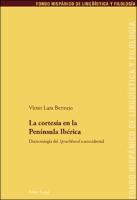La cortesía en la Península Ibérica
Dialectología del «Sprachbund» suroccidental
Abstract
Las formas de tratamiento en el ámbito hispánico y lusófono representan uno de los temas más complejos y, a la vez, más estudiados. La diversidad de alternativas y usos a ambos lados del Atlántico es bien conocida, aunque la mayoría de estudios se concentra en casos aislados de una ciudad o región muy determinada, o bien muestra un análisis descriptivo de los pronombres de cortesía. Además, los especialistas han prestado más atención a la casuística de las variedades americanas y menos a la situación del español y portugués europeos. Este estudio pretende dar cuenta de la evolución de las formas de tratamiento en la Península Ibérica en los últimos cien años, con un especial énfasis en el fenómeno de nivelación que se atestigua en la zona suroccidental. De forma pionera, se expone el comportamiento geolingüístico, sociolingüístico y gramatical de dicha nivelación, aplicando métodos estadísticos y los programas de cartografía más actuales. Todo ello, auspiciado por una metodología innovadora y un corpus cuantitativo que refleja la estrecha relación que guardan el español y el portugués, no solo en la cortesía, sino a nivel lingüístico, derivando en un Sprachbund que tiene como foco el suroccidente de la Península Ibérica.
Keywords
Language learning: speaking skills; Language teaching and learning; Language: reference and general; Language learning: grammar, vocabulary and pronunciation; LinguisticsDOI
10.3726/b14493Publisher website
https://www.peterlang.com/Publication date and place
Bern, 2018Series
Fondo Hispánico de Lingueística y Filología, 29Classification
Grammar, syntax and morphology
Historical and comparative linguistics
Semantics, discourse analysis, stylistics


 Download
Download